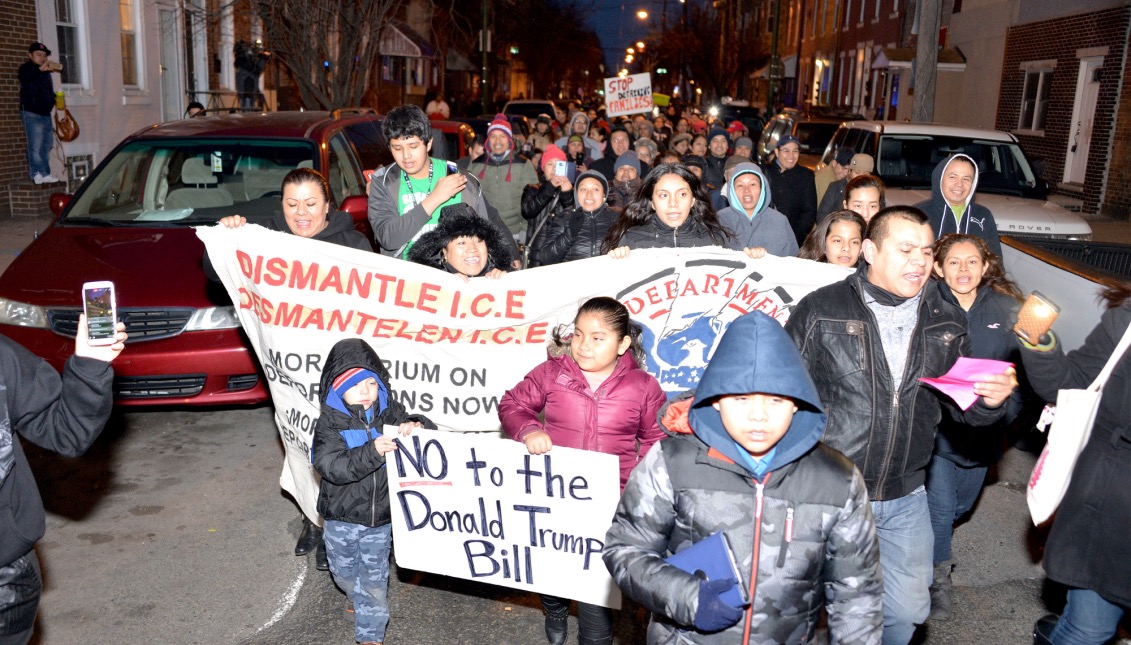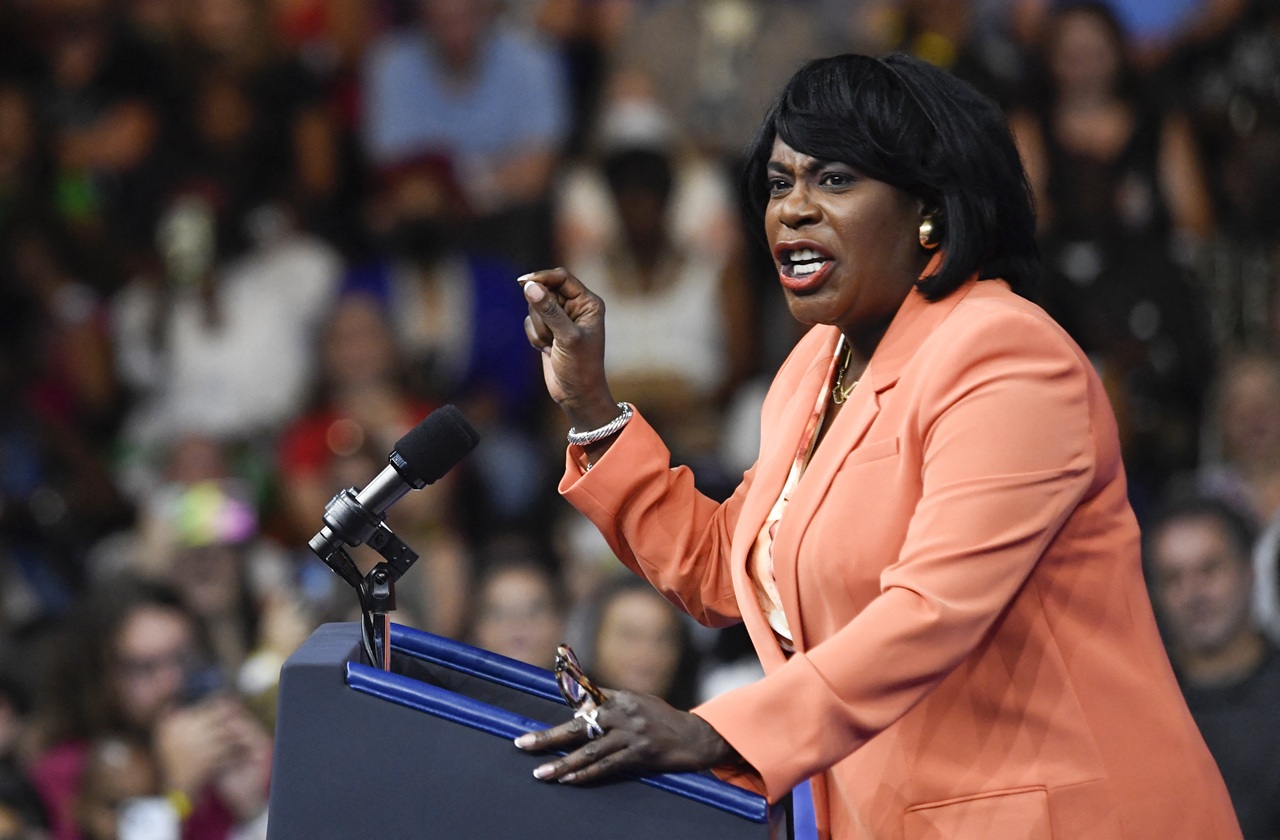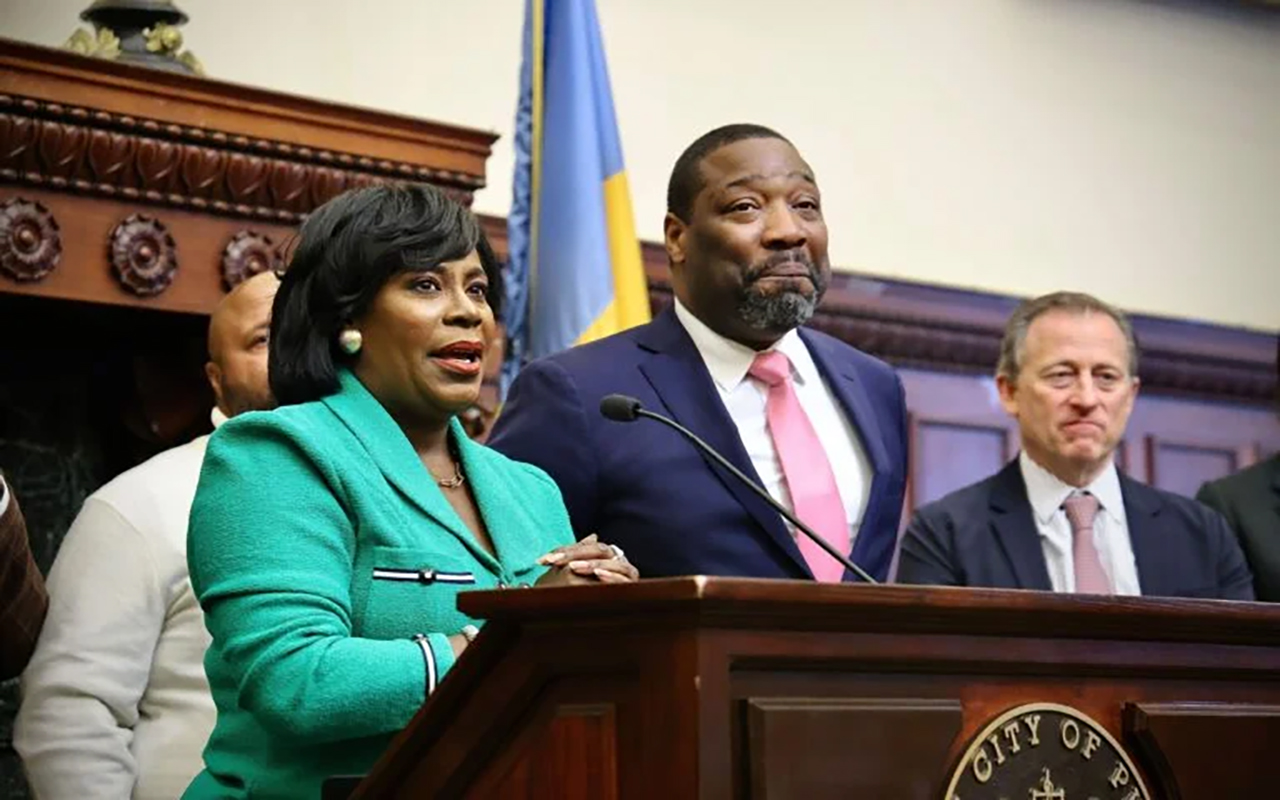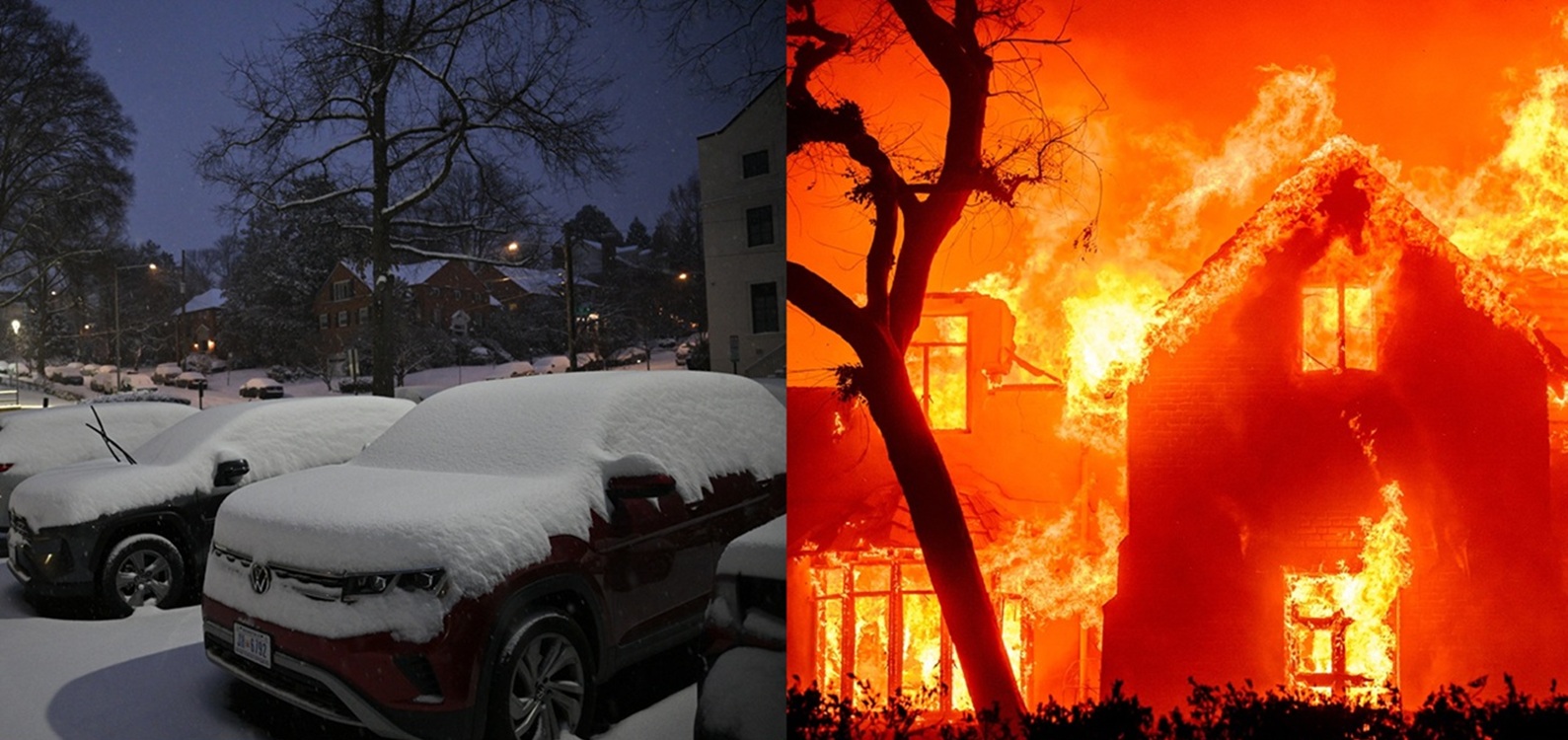
This is what's going to happen in Philly on May Day
What is the value of black and brown bodies to the city of Philadelphia? Local groups in the city hope to show just that on May 1st.
What is Philadelphia without black and brown workers, without LGBT labor, without the marginalized?
That is the question that protesters hope to answer on May 1st, not only in the diverse city of brotherly love but across the country.
Imagine stores and restaurants closed, empty school chairs, streets barren and empty of the very people that feel they are being cast aside in the current political climate.
This is the image that people and social justice organizations throughout the city are looking to see on what is known as ‘May Day’ to many.
Not to be confused with ‘A Day Without Immigrants,’ ‘A Day Without Me’ is a day designated to larger action throughout the city and nationwide that focuses on the economic power and presence that black and brown people bring to the city and the country.
But ‘A Day Without Me’ is speculated by organizers of Juntos and the Black and Brown Worker’s Collective to be even larger than before. While the previous protest led to the closing of 32 businesses, empty school chairs and a march in South Philly, the upcoming one will take place as a rally outside of City Hall at noon to lobby City Council and the mayor to make Philadelphia a true sanctuary city.
By calling out of work, not buying goods, and not going to school, people are hoping to send the message that the effort to “Make America Great Again,’ may actually be a step towards destroying America’s current status and success by ignoring, deporting, or persecuting people who do have a hand in making Philadelphia and the United States it’s greatest yet.
“The best ideal would be showing what would happen in a city like Philadelphia if we keep up with all these policies that are targeting black and brown bodies - what it would truly look like if all of us weren’t here - right? Not only the economic effort that we provide but also our friends, our neighbors, our coworkers, our classmates that could suddenly (if things keep going the way they are) not be there,” says Miguel Andrade, organizer with Juntos.
The effort is a direct action that is responding to President Trump's political agenda, one that has been marked by many as anti-immigration, anti-LGBT, and anti-Muslim. The campaign started with a consistent pledge to seal the U.S. border with Mexico (a plan that was now since put on hold) and a travel ban on citizens of seven majority-Muslim countries (which was put on hold due to various legal actions by the courts).
“One of the things that we see in Juntos is that the liberation of the immigrant community, brown people, and the Latino community is directly tied to the liberation of black people in this country. And I’ve seen - and we’ve seen- that the oppression of black people in this country is tied to anti-blackness and racism and [we’re] really highlighting that and addressing those issues in an intersectional way.”
On February 16th, more than 32 businesses in the area closed for the day by estimates from Billy Penn as an intention to show the true impact of immigrants on local businesses within the community.
The protest on that day had a strong base in the restaurant industry with an estimated three-quarters of the Philly immigrant community working in the hospitality industry, especially in some of the top restaurants in the area.
For example, Rufino Carreon decided to close his El Patron Restaurant and Bar on Atlantic Avenue despite the economic loss.
"For one day to close, it costs," he told the Philadelphia Inquirer. But he said it was important to show support.
"I have my family too," he says. "I pray for my family, the way he's doing everything," he said, referring to Trump.
Many restaurants, however, remained open though they had workers that were absent but a business that continued to run as usual.
At Pietro Mushrooms in Kennett Square, a quarter of the staff, 15 people, did not come to work Thursday, said Chris Alonzo, the president and owner. Some farms in Kennett Square are missing as many as 80 percent of their workers, said Alonzo, a third-generation mushroom farmer who also leads the Chester County Agricultural Development Council.
Other businesses decided to compromise served limited menus or donated a portion of their profits to the prominent civil rights organizations in the city.
But businesses outside of the restaurant industry also contributed with some business owners closing everything from daycares to clothing stores.
And the impact was real. That day with 32 businesses closed and employees missing the projected impact of May 1st is that of an even larger and more organized day of action.
In a city that is 44% African-American, 14% Hispanic or Latino, 7% Asian-American, according to the 2015 Census, an action that includes all these groups, especially those that are working in a city with the highest poverty and unemployment rates of a major city in the country, will be one that truly shows the power of the communities that make up a majority of the city both in demographics, culture, and contribution.
The numbers are clear, immigrants play a vital role in supporting Philadelphia’s local economy, with an estimated 40,171 immigrant entrepreneurs in the city. The Greater Philadelphia Chamber of Commerce’s 2015 Roadmap for Growth reported that since 2000, immigrants are responsible for 96% of the small business growth and 75% of the workforce growth. Of the nearly one billion dollars in earnings generated by small business owners in the City of Philadelphia, immigrant entrepreneurs are responsible for $770 million, or 72%, of those earnings, according to the Americas Society/Council of the Americas.
So with the economic impact so great, the city has a lot to lose, but if it uplifts the community, it has a lot to gain.
“This is not about a particular community, this is about Philadelphia as a whole, as human beings in general,” Andrade said in a statement.
The impact of these growing communities is clear to everyone present except those that seem to be at the top according to organizers.
“The truth is we’re a force. We’re a community that impacts everyone and we are the ones who can implement change through our actions on a day-to-day basis.”
Set to be one of the first real acknowledgments of International Worker’s Day, the day is set to be in the spirit of what Labor Day that is observed in September once was.
Labor Day, a day with the same concept but one that has quickly been summarized to simply be a holiday where the efforts of workers are acknowledged with a day off, is the country’s main competitor and often more celebratory of a tone.
It is for this reason that many people living in the United States know little about the International Workers' Day or ‘May Day.’
Some assume that it is a holiday celebrated in state communist countries like Cuba or the former Soviet Union.
But historians say that May Day has its origins here in this country and is as "American" as baseball and apple pie.
RELATED CONTENT
The protest on May 1st is the closest to the intention of the ones that started in the late nineteenth century, where working class people were fighting for the right to have a better quality work environment that included a shortage from the previous 16 to 11 hour workday to the current 8 hour standard we request today.
At a time when working conditions were so bad that death and injury were commonplace at many work places and inspired such books as Upton Sinclair's The Jungle and Jack London's The Iron Heel, works demonstrated for a shorter work day in moves that took quite some time but weren’t official until larger action was taken.
With socialism on the rise among the working class people, communities across the country saw capitalism and the governmental structures of the time.
To the working class, the current system only benefited their bosses, trading in workers' lives and the lives of women, children and the poor for profit.
It was then that socialist organizations ranging from political parties to choir groups sprung up and either elected officials or organized demonstrations.
At its national convention in Chicago, held in 1884, the Federation of Organized Trades and Labor Unions (which later became the American Federation of Labor), proclaimed that "eight hours shall constitute a legal day's labor from and after May 1, 1886." The following year, the FOTLU, backed by many Knights of Labor locals, reiterated their proclamation stating that it would be supported by strikes and demonstrations.
There grew a sense of a greater social revolution beyond the more immediate gains of shortened hours, but a drastic change in the economic structure of capitalism.
And just as social justice organizations were the cause of the reform almost 200 years ago, they are the major sources of a reform from the bottom during the Trump administration.
Several organizations are taking the lead to help solidify the efforts that will take place on the 1st. And one major leader being Juntos, the social justice organization in South Philadelphia dedicated to advancing immigrants.
“In the coming weeks, we will be preparing to strike for May Day (May 1st) and organizing a rally for a Day Without Immigrant, Black, and Brown folks. We in Philadelphia are working to expand sanctuary and to build solidarity between black and brown communities,” said Miguel Andrade, organizer of the group.
Though the action on the 16th showed a strong impact within the business community, the actual presence at protests and demonstrations was slim though noticeable.
On February 16th, the midday protest at Thomas Paine Plaza had a couple dozen attendees with the March in South Philadelphia that started at Juntos headquarters had at least a hundred.
But the organizers are expecting the protest to host more people and as such are raising $5,000 for supplies such as markers, paper, and a sound system for registered speakers.
The campaign has raised $440 of the money so far and hopes to raise more in the overtime. The group is hoping to expand on the turnout from “A Day Without Me’ and build a long term connection between communities in the area.
“The fundraiser itself is that we’re raising funds for things like art supplies for megaphones for the march and just some supplies…banners and everything so this week we’re trying to get all the materials for the march,” said Andrade.
“We’re encouraging people to donate where they can… this is going to be ongoing. This is not just about May 1st it’s about the efforts that will be going after May 1st because we don’t want this to just sort of end in one day this is sort or a merging point, really building solidarity between black and brown communities and that’s going to take a lot of organization from a lot of different groups and we’re going to need funds to do that,” said Andrade.
The march on May 1st will take place outside of City Hall at noon.











LEAVE A COMMENT: